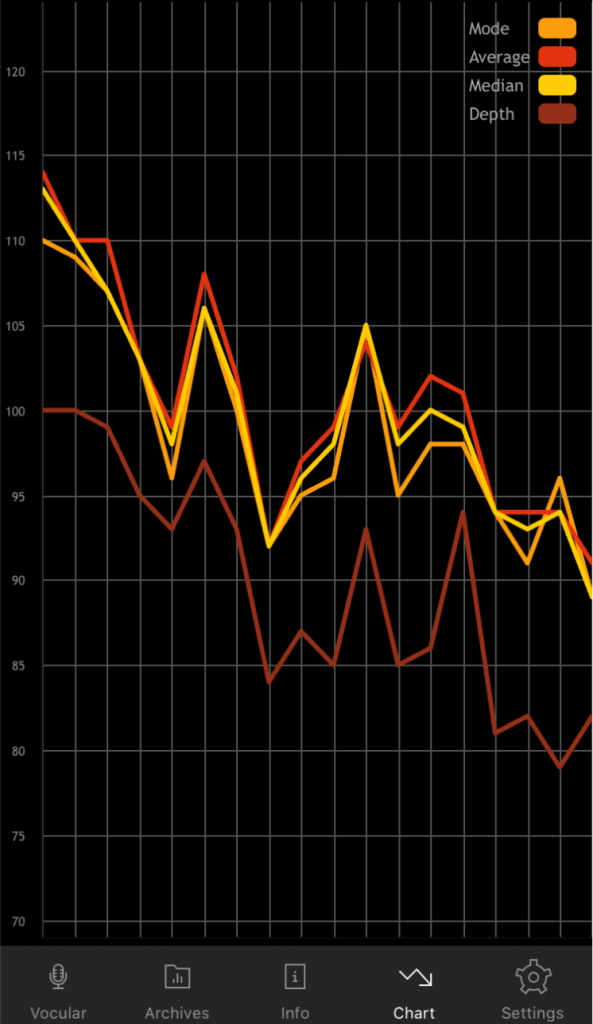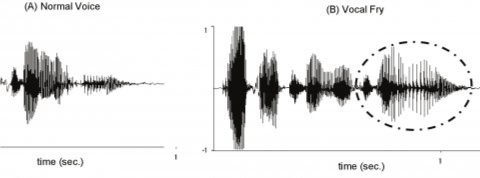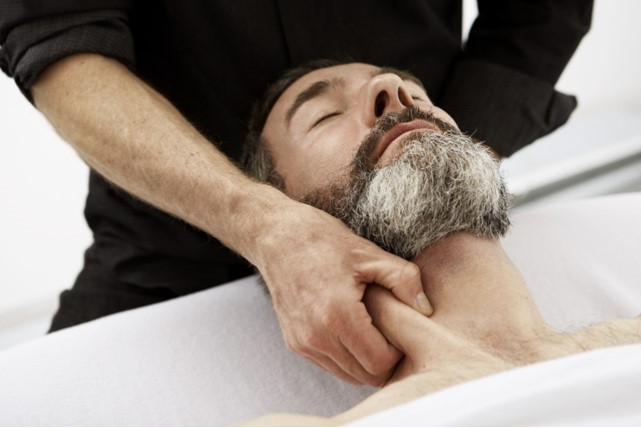M
Madrigal
Iron
- Joined
- Mar 4, 2021
- Posts
- 203
- Reputation
- 591
Voice is an underrated infrequently talked about trait that is a major component of perceived charisma, dominance and significant for sexual attraction and perceived "personality". Unfortunately you're limited by your hormonal profile and vocal chord thickness as to how you sound but you can make some changes to improve how you sound.
Example of how it matters
People like Daniel Craig, Rowan Atkinson and Peter Dinklage sound very captivating to listen to and seem much more attractive when you scourge through interviews than they should based off their face, just because of their voice. Very unlikely they'd have any appeal as a celebrity otherwise (not talking about in Mr. Bean of course).
Lower voices are more attractive and dominant in men, and a study showed 96Hz as ideal male voice pitch but anything deep is good.



Let's use this guy as an example. He is downright ugly but sounds profoundly charismatic and pleasing to listen to due to his voice.
On the other hand Sean O'Pry the PSL god sounds like an utter cuck and my "respecc" for him dropped compared to if I never heard his voice.

Options
Example of how it matters
People like Daniel Craig, Rowan Atkinson and Peter Dinklage sound very captivating to listen to and seem much more attractive when you scourge through interviews than they should based off their face, just because of their voice. Very unlikely they'd have any appeal as a celebrity otherwise (not talking about in Mr. Bean of course).
Lower voices are more attractive and dominant in men, and a study showed 96Hz as ideal male voice pitch but anything deep is good.



Let's use this guy as an example. He is downright ugly but sounds profoundly charismatic and pleasing to listen to due to his voice.
On the other hand Sean O'Pry the PSL god sounds like an utter cuck and my "respecc" for him dropped compared to if I never heard his voice.

Options
- Thyroplasty ($2500~)
If your voice is actually terrible, you might need this.
Simple one night stay surgery.
- Testosterone/steroids
Many bbuilders get a deeper voice after a few cycles.
- Voice training and modulation
If done religiously you might get a 20Hz or so pitch drop just by doing this, which is a huge deal.
Voice training and modulation
Download this app called Vocular, it's cheap and definitely worth it to track your vocal pitch and progress.
Download this app called Vocular, it's cheap and definitely worth it to track your vocal pitch and progress.
"Here’s How I Got a Deeper Voice (the 5 Best Techniques)
"Here’s How I Got a Deeper Voice (the 5 Best Techniques)
If you came here from Google, you’ve probably already been through a heap of articles on how to get a deeper voice. The problem with these is, none of them seem to be written by people who are actually speaking from experience. With each point, you have no idea whether you’re getting tried and tested advice or just guesswork they’ve plucked from the internet.

As someone who has actually deepened his voice (from about average to low), I wanted to take a different tack and discuss the methods that worked for me, alongside a few others. Most of these I’ve tried, but not all of them, so where I don’t have first-hand knowledge I’ll link to discussion boards to show you real people talking about these techniques and how they worked for them.
Just to get it out of the way, none of this is medical advice. I trust you to follow these tips without giving yourself an injury – and if you feel in any way like you might, you should stop immediately. Right, here we go.
–
1. Strengthen your Neck Muscles
1. Strengthen your Neck Muscles
I’ve seen a lot of talk about this online, so I wanted to start by confirming here: this truly does work. Actually, it’s my favourite method of all of them.
If you put your hand on your throat, you’ll feel two long muscles which run down from behind your ear to your collarbone. These are your sternocleidomastoids, and when they get tense they tug on your vocal chords, resulting in a higher note. Relax these and, logically enough, your voice gets lower.

One recommended way of doing this is by making the neck muscles stronger. Stronger muscles are better at meeting their daily demands and therefore less likely to tighten up throughout the day. I was interested in this idea, so I thought I’d test it out.
Every day, at 2 o’clock and in the same room, I recorded a sample of my voice and wrote down the figures. I chose 2pm because I wanted the ‘morning effect’ of my voice to have worn off and I knew I wouldn’t have been drinking alcohol around that time. After the recording, every other day, I’d do 3 sets of 20 reps of crunches, where I lay on my bench and slowly nodded my head from horizontal to vertical, tucking in my chin – like doing sit-ups with your neck.
And it worked. Here’s a chart I made with Vocular.

As you can see, by all four metrics, my voice did deepen over time. My matches completely changed too.
More compellingly, my voice actually got higher before it got lower. It starts at about 105Hz, then shoots up to 113Hz and stays high for a week, before it gradually deepened month after month to the current pitch of 89Hz. That’s like going from Edward Norton, to Justin Bieber, to Jon Hamm.
This fits the idea that strong neck muscles give you a deeper voice. The exercises first made my neck weaker, like any muscle when you start training it. So my voice got higher. Then, as I continued with the exercises, it got used to the strain and became stronger, and my pitch dropped.
I should add that I also stretch my neck to relieve any tension that might build up with the exercises. So if you’re thinking of doing this, that’s something to keep an eye on. In fact, this guy on Reddit seems to have a routine which worked really well for him and seems to focus more on stretching.
Update: I’m also currently experimenting with a neck harness to build the muscles at the back of my neck as well as the front. It’s early days but I’ll report back here if I find that to be more effective.
If you put your hand on your throat, you’ll feel two long muscles which run down from behind your ear to your collarbone. These are your sternocleidomastoids, and when they get tense they tug on your vocal chords, resulting in a higher note. Relax these and, logically enough, your voice gets lower.

One recommended way of doing this is by making the neck muscles stronger. Stronger muscles are better at meeting their daily demands and therefore less likely to tighten up throughout the day. I was interested in this idea, so I thought I’d test it out.
Every day, at 2 o’clock and in the same room, I recorded a sample of my voice and wrote down the figures. I chose 2pm because I wanted the ‘morning effect’ of my voice to have worn off and I knew I wouldn’t have been drinking alcohol around that time. After the recording, every other day, I’d do 3 sets of 20 reps of crunches, where I lay on my bench and slowly nodded my head from horizontal to vertical, tucking in my chin – like doing sit-ups with your neck.
And it worked. Here’s a chart I made with Vocular.

As you can see, by all four metrics, my voice did deepen over time. My matches completely changed too.
More compellingly, my voice actually got higher before it got lower. It starts at about 105Hz, then shoots up to 113Hz and stays high for a week, before it gradually deepened month after month to the current pitch of 89Hz. That’s like going from Edward Norton, to Justin Bieber, to Jon Hamm.
This fits the idea that strong neck muscles give you a deeper voice. The exercises first made my neck weaker, like any muscle when you start training it. So my voice got higher. Then, as I continued with the exercises, it got used to the strain and became stronger, and my pitch dropped.
I should add that I also stretch my neck to relieve any tension that might build up with the exercises. So if you’re thinking of doing this, that’s something to keep an eye on. In fact, this guy on Reddit seems to have a routine which worked really well for him and seems to focus more on stretching.
Update: I’m also currently experimenting with a neck harness to build the muscles at the back of my neck as well as the front. It’s early days but I’ll report back here if I find that to be more effective.
2. Breathe from the Diaphragm
2. Breathe from the Diaphragm
Ever noticed how your shoulders bob up and down as you breathe in and out?
If you’re have, you’re doing it wrong. This is a thing called ‘shallow breathing’ and it’s something most people are guilty of. While it seems as good as any method, this kind of breath shifts effort to the upper half of the torso, putting tension on the neck and vocal chords.
Instead, breathe with the muscle that’s designed to do it: the diaphragm. As you inhale, try to shift the effort downward so your stomach flexes out while your shoulders remain completely still. Feel as though the air is being summoned by your abs.
I know it’s quite hard to follow in writing, so Eric Arceneaux does a very good job of explaining this.

This one correction had the greatest impact on my voice depth – but, like any bad habit, it requires a conscious effort to overcome it. You may want to try something to remind yourself when you’re creeping back to your old ways. One vocal coach has created the Singing-Belt to do this, although it’s expensive so using kinesiology tape or a tight T-shirt might work better.
It’s tough to get used to, but mastering diaphragmatic breathing will also give you a richer, more resonant voice, which is probably more important than having a deep voice. It also has a host of other benefits, such a reducing stress and improving athletic performance, since it’s just a more efficient way to breathe.
If you’re have, you’re doing it wrong. This is a thing called ‘shallow breathing’ and it’s something most people are guilty of. While it seems as good as any method, this kind of breath shifts effort to the upper half of the torso, putting tension on the neck and vocal chords.
Instead, breathe with the muscle that’s designed to do it: the diaphragm. As you inhale, try to shift the effort downward so your stomach flexes out while your shoulders remain completely still. Feel as though the air is being summoned by your abs.
I know it’s quite hard to follow in writing, so Eric Arceneaux does a very good job of explaining this.

This one correction had the greatest impact on my voice depth – but, like any bad habit, it requires a conscious effort to overcome it. You may want to try something to remind yourself when you’re creeping back to your old ways. One vocal coach has created the Singing-Belt to do this, although it’s expensive so using kinesiology tape or a tight T-shirt might work better.
It’s tough to get used to, but mastering diaphragmatic breathing will also give you a richer, more resonant voice, which is probably more important than having a deep voice. It also has a host of other benefits, such a reducing stress and improving athletic performance, since it’s just a more efficient way to breathe.
3. Aspirate
3. Aspirate
You can try this one for yourself and immediately see its effect. Open Vocular and enable the Pitch Tracker in Settings, then speak to the microphone in your normal voice and see what numbers come up.
Now try talking in a breathier, more aspirated kind of way, as if you’re speaking through a sigh. If you need someone to copy, Tom Hiddleston’s a pretty good example.

You should see your numbers drop as soon as you take on this breathier kind of tone. And not only does this make your voice deeper, it makes it more attractive too. A 2014 study found that the most attractive male voices were also the breathiest – and this was so pronounced that women preferred a high-pitched but breathy voice over a deep, non-breathy one.
Now try talking in a breathier, more aspirated kind of way, as if you’re speaking through a sigh. If you need someone to copy, Tom Hiddleston’s a pretty good example.

You should see your numbers drop as soon as you take on this breathier kind of tone. And not only does this make your voice deeper, it makes it more attractive too. A 2014 study found that the most attractive male voices were also the breathiest – and this was so pronounced that women preferred a high-pitched but breathy voice over a deep, non-breathy one.
4. Drink More Water
4. Drink More Water
Please don’t skip over this section, because it’s a lot more important than you might think. You know how the depth of your voice is partly caused by the size of your vocal chords? Well, dehydration literally shrinks your vocal chords. The loss of water equates to a loss of mass, leaving you with thinner, squeakier vocal chords.
And, strikingly, most people are dehydrated. A recent study found that 75% of Americans fell far below the recommended daily intake, which, again, gives us a majority of people speaking with higher voices than they ought to be.

The solution is to make things easier for yourself. If you work at a desk, get a jug (one that can hold 3-4 litres) and fill it every morning. Not only will this encourage you to drink more because it’s there, it’ll bring the water to room temperature which stops the throat contracting from the cold.
If you’re sceptical about the impact of this, see for yourself. My hydrated voice is often so much deeper that it shares almost no overlap with my dehydrated one – the similarity comes out at about 10-20%. In fact, I now make a point of drinking a litre of water an hour before going on a date or to an important meeting.
And, strikingly, most people are dehydrated. A recent study found that 75% of Americans fell far below the recommended daily intake, which, again, gives us a majority of people speaking with higher voices than they ought to be.

The solution is to make things easier for yourself. If you work at a desk, get a jug (one that can hold 3-4 litres) and fill it every morning. Not only will this encourage you to drink more because it’s there, it’ll bring the water to room temperature which stops the throat contracting from the cold.
If you’re sceptical about the impact of this, see for yourself. My hydrated voice is often so much deeper that it shares almost no overlap with my dehydrated one – the similarity comes out at about 10-20%. In fact, I now make a point of drinking a litre of water an hour before going on a date or to an important meeting.
5. Be More Monotone
5. Be More Monotone
I’ve noticed a few names that come up time and time again when discussing voice depth. One of these names is Clint Eastwood. But the weird thing here is that, in terms of pitch, Eastwood doesn’t have a deep voice. It’s about average.

However, one thing Eastwood has in spades in monotony. This is a very manly trait – in fact, a recent study found that men with monotone voices tend to have more sexual partners than those who don’t. So it may be that the masculinity of a monotone voice tricks people into thinking that voice is deep as well.
This is backed up by a paper on vocal attractiveness, which found that the voices which varied less in pitch were the most likely to be considered deep. In fact, pitch variation was almost as important as actual pitch in deciding whether a voice was deep or not. "

 vocularapp.com
vocularapp.com

However, one thing Eastwood has in spades in monotony. This is a very manly trait – in fact, a recent study found that men with monotone voices tend to have more sexual partners than those who don’t. So it may be that the masculinity of a monotone voice tricks people into thinking that voice is deep as well.
This is backed up by a paper on vocal attractiveness, which found that the voices which varied less in pitch were the most likely to be considered deep. In fact, pitch variation was almost as important as actual pitch in deciding whether a voice was deep or not. "

Here's How I Got a Deeper Voice (the 5 Best Techniques) – Vocular | How Deep is Your Voice?
If you came here from Google, you’ve probably already been through a heap of articles on how to get a deeper voice. The problem with these is, none of them seem to be written by people who are actually speaking from experience. With each point, you have no idea whether you’re getting tried and...
How to Tell if You Have Vocal Fry (and why does it matter)
How to Tell if You Have Vocal Fry (and why does it matter)
Vocular now does vocal fry, so I wanted to answer a few questions about that today – what is it, what does it mean, how can you tell how much you speak with, etc. Here we go.
What is vocal fry?
What is vocal fry?
That’s that low-pitched, creaky, pulsating sound you hear most famously in the voices of women like Kim Kardashian and Zooey Deschanel.

This isn’t something limited to women though. In fact, Bill Clinton has the most vocal fry of anyone on our database.

This isn’t something limited to women though. In fact, Bill Clinton has the most vocal fry of anyone on our database.
How can you tell how much vocal fry you speak with?
How can you tell how much vocal fry you speak with?
Just like anything else, all you have to do is open the app, hit the record button and speak for about 30 seconds. The algorithm then analyses your voice to tell you how much vocal fry it finds. Anything over 15% is a lot, and anything under 6% is very little – although the app explains all this anyway. Check it out below.

(Just as a note, this doesn’t really work if you’re a guy with a deep voice. That kind of vocal fry is too low to detect well, although we should be able to do this in the future once we can analyse the smoothness of voices.)

(Just as a note, this doesn’t really work if you’re a guy with a deep voice. That kind of vocal fry is too low to detect well, although we should be able to do this in the future once we can analyse the smoothness of voices.)
Why is vocal fry important?
Why is vocal fry important?
In theory, vocal fry should be a good thing. Deep voices are rated as being more authoritative. People are more easily persuaded by speakers who lower their pitch whilst making a point. Even CEO salaries rise as their pitch falls. So talking in vocal fry, the lowest register of the human voice, should be a good thing.

But studies tell us a very different story. Recent research looked at attitudes towards vocal fry using pairs of voices – both made by the same speaker – one with fry and the other without. The main finding: listeners were several times more likely to rate the fry voice as less trustworthy, less educated and less competent. They also claimed to be significantly more likely to hire the other voice.
And this wasn’t just about old people hating new ways of speaking. Every demographic shared the same prejudice against vocal fryers, although old women showed the greatest aversion to them.

But studies tell us a very different story. Recent research looked at attitudes towards vocal fry using pairs of voices – both made by the same speaker – one with fry and the other without. The main finding: listeners were several times more likely to rate the fry voice as less trustworthy, less educated and less competent. They also claimed to be significantly more likely to hire the other voice.
And this wasn’t just about old people hating new ways of speaking. Every demographic shared the same prejudice against vocal fryers, although old women showed the greatest aversion to them.
How do you stop speaking with vocal fry?
How do you stop speaking with vocal fry?
You just do, really. Vocal fry is like any other bad habit, so unless you’ve got some rare vocal chord condition, you should be able to consciously keep your voice from falling into that lower register. Then it’s just a case of practising until it become second nature to you.
Vocular can help you with this by giving you a clearer idea of how much fry is in your voice. Breathing deeply and diaphragmatically should also make it easier to keep your voice up in the modal register.
Vocular can help you with this by giving you a clearer idea of how much fry is in your voice. Breathing deeply and diaphragmatically should also make it easier to keep your voice up in the modal register.
Why do people find vocal fry so annoying?
Why do people find vocal fry so annoying?
Well, there are some people who seem to want to put all this down to misogyny, like vocal fry is actually just a conduit for criticising women’s freedom of speech. Even a recent episode of Things You Should Know went down this route.
A lot of people are trying to dance around this or prove that it’s sexist – it’s like no, on its face, this is a sexist argument that’s going on right now.
This might be true for a few weirdos who write in to these shows, but it ignores basic differences in the way men and women speak. Female voices tend to be roughly twice as high as male voices, so it’s far more jarring when they keep dropping into registers down in Morgan Freeman territory. Some men, on the other hand, have voices deep enough that it’s really difficult to separate from their vocal fry. Even I have trouble doing this with myself.
Also, it’s not as though all female presenters are being chastised for their voices on the internet. Kirsty Young hosts Desert Island Discs, a show with an audience probably similar to something from NPR, and Twitter is awash with people announcing how much they love her voice. The difference? She has almost no vocal fry at all in her voice. She actually has the least of any woman in our database.

The anti-fry reaction isn’t limited to female voices either. The study I mentioned before found that vocal fry was equally disapproved of in male voices as it was in female ones.
There are other reasons why fry might generally be something people don’t like to listen to. I’ve said it a few times before, but the most attractive voices are usually the breathiest, huskiest or smoothest ones. Vocal fry tends to be the opposite of that. Actually, you need only look at a spectrogram to see what a harsh kind of sound it is.

It also sounds weak, in my opinion. A croaking, creaky voice isn’t something you naturally associate with a high level of fitness – it can be caused by bad breathing technique or vocal fold pathology. So it may also be that the most attractive voices tend to sound the healthiest.
Also, it’s not as though all female presenters are being chastised for their voices on the internet. Kirsty Young hosts Desert Island Discs, a show with an audience probably similar to something from NPR, and Twitter is awash with people announcing how much they love her voice. The difference? She has almost no vocal fry at all in her voice. She actually has the least of any woman in our database.

The anti-fry reaction isn’t limited to female voices either. The study I mentioned before found that vocal fry was equally disapproved of in male voices as it was in female ones.
There are other reasons why fry might generally be something people don’t like to listen to. I’ve said it a few times before, but the most attractive voices are usually the breathiest, huskiest or smoothest ones. Vocal fry tends to be the opposite of that. Actually, you need only look at a spectrogram to see what a harsh kind of sound it is.

It also sounds weak, in my opinion. A croaking, creaky voice isn’t something you naturally associate with a high level of fitness – it can be caused by bad breathing technique or vocal fold pathology. So it may also be that the most attractive voices tend to sound the healthiest.
So what’s the bottom line?
So what’s the bottom line?
Bottom line is that vocal fry seems only to carry negative connotations, so it would be a smart move to learn to speak without it. Aiming for 0% is unrealistic, since some level of fry is natural and unavoidable, but keeping to the single figures should give you a stronger, more authoritative and more attractive voice.
Morgan Freeman tells you how to get a deeper voice
Morgan Freeman tells you how to get a deeper voice
Morgan Freeman didn’t always have that voice. He had to work at it. In fact, he recently stated that the first major step he made towards becoming an actor was learning to lower the pitch of his voice.

The voice started when I was in college, when my first efforts were in officially learning the business of acting. That’s not really what you should be trying to learn, you should be trying to get your instrument honed, and part of that instrument is your voice. And I had an instructor, a man named Robert Whitton at LACC, who nailed elocution, diction, breath control, into his students. You made a record at the beginning of his class and at the end so you could hear the difference. The first thing he does is he teaches you that your voice is too high – most people speak with a tense throat and it’s too high – so he gives you techniques on how to relax that. And your voice, it deepens.
But how did he do it? Well, although details have always been a bit sketchy, he did divulge this tip.

In a word, yawn. Yawn a lot.
His explanation: yawning relaxes the muscles of the throat, which relieves your vocal chords of tension and allows them to loosen up – just like slackening a guitar string for a lower note.
And he’s right. The pitch of your voice effectively comes down to three factors: the length, thickness, and tension of your vocal chords. The first two are typically seen as outside of your control (although that’s not true; staying hydrated makes your vocal chords bigger and therefore lower-pitched). But the third is something that you can master. And yawning is just one method for doing that.
I found this comment from a guy who’d heeded Freeman’s advice.

In a word, yawn. Yawn a lot.
His explanation: yawning relaxes the muscles of the throat, which relieves your vocal chords of tension and allows them to loosen up – just like slackening a guitar string for a lower note.
And he’s right. The pitch of your voice effectively comes down to three factors: the length, thickness, and tension of your vocal chords. The first two are typically seen as outside of your control (although that’s not true; staying hydrated makes your vocal chords bigger and therefore lower-pitched). But the third is something that you can master. And yawning is just one method for doing that.
I found this comment from a guy who’d heeded Freeman’s advice.
It’s working buddy but you have to be persistent I yawn at least 40 times per day every day for more than three months. It’s been 4 months since I started doing it, and I see results, my friends have noticed it also, and the best part is when I record myself I don’t sound like a damn girl anymore I’m a legit man now
And another, who thought the advice was along the right lines but that there were better exercises out there.
I’m not sure if yawning is the best exercise, but limbering up the vocal cords is the first step to reaching your potential.
I’ve been called the White Morgan Freeman a solid dozen or more times by complete strangers lol.

@RODEBLUR @PrestonYnot @Chadeep @changcel @Strike_Poseidon @16tyo @SubhumanCurrycel @toth77 @ArvidGustavsson @IwantToLooksMaxx @TraumatisedOgre @my_babel_physics_pro @Kenickie @looksmaxxer234 @IWILLMAKEIT @Senhor Cabrito @pizza @Amnesia @looksmax.me @Cigarette @Currypirate4 @ssjchad @faggotchadlite
Last edited:








